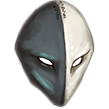Home
Actions/Activities
Afflictions
Ancestries
Archetypes
Backgrounds
Classes
Conditions
Creatures
Equipment
Feats
Hazards
Mythic
Rules
Setting
Skills
Spells/Rituals
Traits
 Licenses
Sources
Licenses
Sources
 Contact Us
Contributors
Support the Archives
Maximize Menu
Contact Us
Contributors
Support the Archives
Maximize Menu
 Licenses
Sources
Licenses
Sources
 Contact Us
Contributors
Support the Archives
Contact Us
Contributors
Support the Archives









